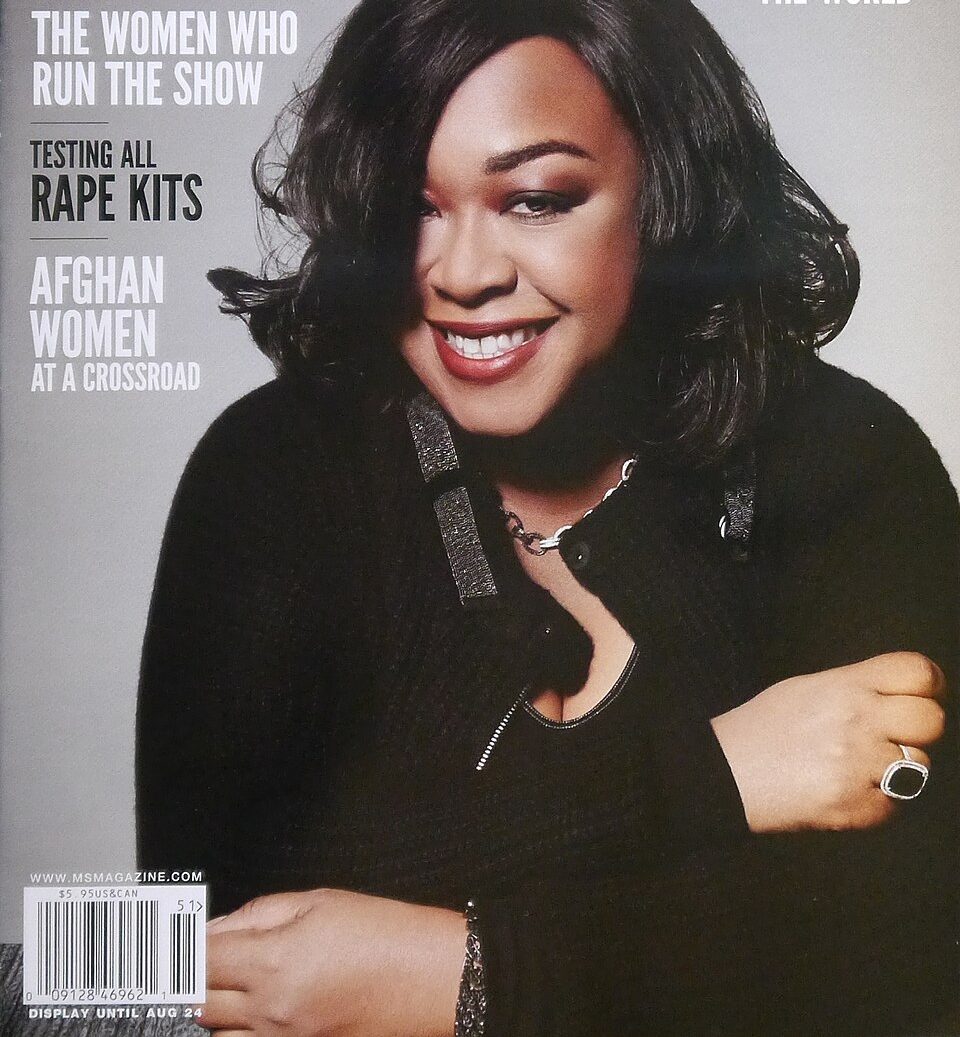Shonda Rhimes: the woman who wrote her way into television history
Toni Morrison once said: “If there’s a book that you want to read, but it hasn’t been written yet, then you must write it.” Shonda Rhimes did exactly that – she produced inclusive stories with complex characters, and became “the most influential showrunner in Hollywood” as Alex Cooper states in her recent interview with Rhimes. In 2014 alone, Rhimes was responsible for an entire lineup of primetime TV that aired back-to-back: Grey’s Anatomy, Scandal, and How to Get Away with Murder. With her recent additions like Bridgerton, Queen Charlotte, and Inventing Anna, it’s safe to say few people in the world exist who haven’t engaged with Shondaland.
With this global success, she became the person everyone (actors, writers, and waiters) in Los Angeles pitched to. For someone so successful and influential, it’s hard to imagine that Rhimes, too, had once been worried about graduating without a job. This might be the reason her stories resonate deeply with her viewers; they are written by someone who remembers what it’s like to live in uncertainty, dream ambitiously, and start from scratch. She was living in her sister’s basement, anxious about her future when she took on the role of a receptionist at an advertising agency. There, she got a chance to write for a test commercial of Barbie. Her essay got selected; she did the voiceover herself, discovered her potential and, more importantly, her path.
She portrayed how women are powerful and can be harbingers of change
She went on to write Crossroads and The Princess Diaries 2 (with the iconic mattress surfing scene), but she had her breakthrough with TV blockbuster Grey’s Anatomy in 2005. The five-time NAACP Image Award winner recalls standing her ground to then ABC President, that she will not have “an all-white show.” Grey’s Anatomy remains TV’s longest-running medical drama, currently on its 22nd season. As a new mother at 32, she reimagined trajectories of women’s lives not only in her stories but also in her life. The events of 9/11 made Rhimes realise that she wanted to be a mother, and she later welcomed her three daughters through adoption and surrogacy. Rhimes joked that her first daughter, Harper Lee, grew up believing that her mother worked in a hospital, revealing how her life and work were so deeply intertwined.
Ratings weren’t as big a concern as producing role-model-like characters for the Writers Guild of America Award winner, and Rhimes succeeded. She recounts how her female characters’ reproductive rights were questioned, and she believed portrayals on television would go a long way for women facing similar issues in the real world. Fans have become aware of symptoms of heart attacks, CPR techniques, and even gone on to become doctors. Despite being written for network television, Rhimes’s storytelling strived for authenticity. Her characters, despite being placed in extraordinary circumstances, speak and act like real people navigating ambition, grief, loss, and love. In Grey’s Anatomy and Scandal, she portrayed how women are powerful and can be harbingers of change at different levels, and showed the intricacies of a woman’s experience across the stages of life.
Whatever she writes next will be just as dynamic, bold, and unapologetic
Rhimes mentioned how she was constantly on the lookout for a second job for a long time, even after conquering primetime television. This uncertainty and her introverted nature made her a workaholic who said no to everything else. She was initially annoyed when her sister offhandedly remarked: “You never say yes to anything”, before realising that while she wrote characters living full lives, she had forgotten to do it for herself.
Rhimes was determined to rewrite her personal script by deciding to spend an entire year saying yes to everything that scared her and took her out of her comfort zone. At the end of the year, she published Year of Yes: How to Dance It Out, Stand in the Sun and Be Your Own Person, a memoir that chronicled her journey from avoidance and emptiness to embracement and fullness. Over the course of the ‘transformative’ year, she did high-profile interviews and speeches, prioritised her holistic health, and arrived at the decision that she did not want marriage. More importantly, she learned that saying yes to herself sometimes meant saying no to others.
During the pandemic, Rhimes traded Los Angeles for Connecticut and also took up golf. In her conversation with Alex Cooper, she revealed crying in the parking lot of a Costco, overwhelmed by the semblance of an ordinary life after decades of relentless grind. While content with her quiet life, she mentioned that she is now excited to write something new for television. If her past works are any indication, whatever she writes next will be just as dynamic, bold, and unapologetic. Shonda Rhimes ruled Thursday nights, but she also quietly taught women around the world how to write and live their own stories.

Comments